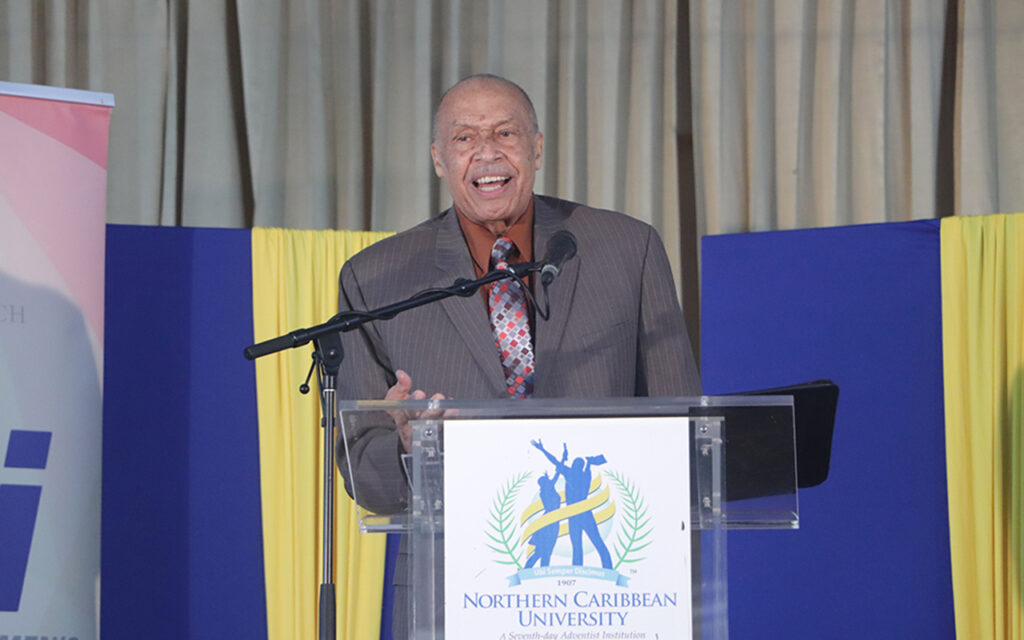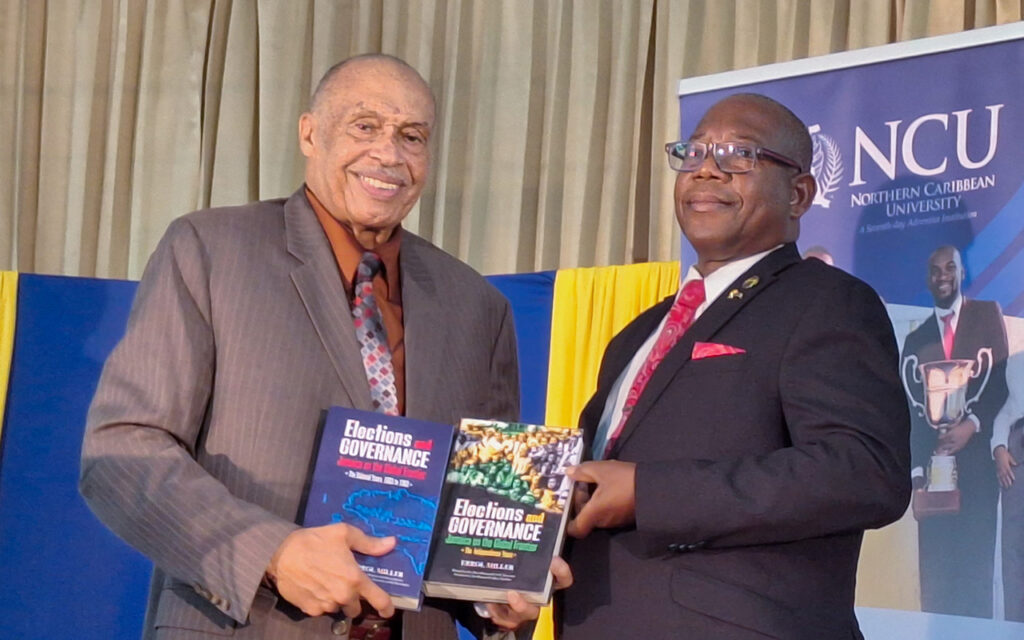Adventist Church in Jamaica Gets High Marks for College Education
February 6, 2024 | Mandeville, Manchester, Jamaica | Shannette Smith and IAD News Staff
Jamaican Educator and Author, Professor Emeritus Errol Miller, has credited the Seventh-day Adventist Church with helping to educate the Jamaican masses during the colonial era through the establishment of the West Indian Training School, now Northern Caribbean University (NCU). The institution was founded in 1907 at Riversdale, St Catherine, Jamaica. It relocated to Mandeville, Manchester, in 1919.
Delivering a recent public lecture at NCU, Professor Miller noted that in the colonial years when schools were closing and jobs were scarce for black men, attending West Indian Training School (later upgraded to college) in the early nineteen hundreds gave young black men opportunity and purpose. The institution also, generally, allowed for underprivileged young persons to receive education beyond grade 14, he said.

Professor Emeritus Errol Miller delivers a public lecture at Northern Caribbean University in Mandeville, Jamaica on the topic, The Role of the Seventh-day Adventist Church in Jamaican Society: Brief Reflections on the Colonial Years, 1893 -1962. The lecture was held on Jan. 18, 2024. [Photo: Shannette Smith]
Seventh-day Adventists seized the opportunity to spread the gospel, educate young people and produce skilled professionals that could serve the church and society, the professor pointed out. He noted that the church continues to apply the “quadrilateral” formula that will impact Jamaican society positively: education, gospel literature sales, health and church recognized from the top-down.
The public lecture titled The Role of the Seventh-day Adventist Church in Jamaican Society: Brief Reflections on the Colonial Years, 1893 -1962, was based on information from Miller’s recent book on Elections and Governance: Jamaica on the Global Frontier, The Colonial Years, 1663-1962. A second volume is titled Elections and Governance: Jamaica on the Global Frontier, The Independence Years.
Professor Miller is one of the foremost researchers and educators in the Commonwealth Caribbean, the first in the region to do significant research on the effects of race, gender, and class on educational outcomes. Following his retirement from the University of the West Indies–his alma mater–he was appointed Chancellor of Mico University College, one of the oldest teacher-training institutions in the Western Hemisphere. Miller also served as a public servant as an Independent Senator as well as Permanent Secretary for the Ministry of Education. He also served for 12 years as Chairman of the Electoral Commission of Jamaica and was fellow commissioner with Dr Herbert Thompson, former president of NCU.

Professor Errol Miller (left) presents two books he recently authored to Professor Lincoln Edwards, President of Northern in the auditorium at Northern Caribbean university in Mandeville, Jamaica on Jan. 18, 2024. [Photo: Nevaughn Bernard]
Professor Miller ended the lecture by challenging churches in Jamaica to focus less on winning converts and more on uniting as one voice to spread the gospel and the need for national repentance so that matters such as crime and other ills of human nature can be mitigated. He congratulated the leadership of the Seventh-day Adventist Church despite disagreements within its membership, on joining the other denominations in Jamaica to encourage Christians to take the COVID-19 vaccine. In his view, this is an example of how the collective church can inspire action for the common good in Jamaica.
The lecture was spearheaded and sponsored by the East Jamaica Chapter of the Adventist-Laymen’s Services and Industries (ASI).
Joining the NCU community were representatives from the Seventh-day Adventist Church and business communities.
For more information on Professor Errol Miller’s book, visit ncu.edu.jm